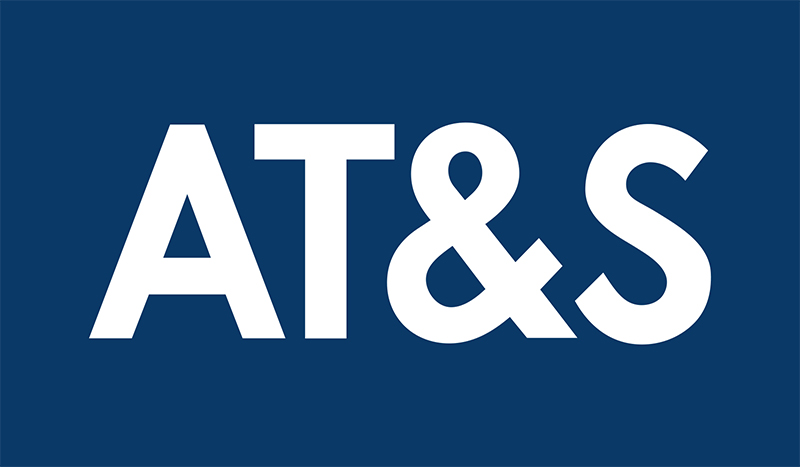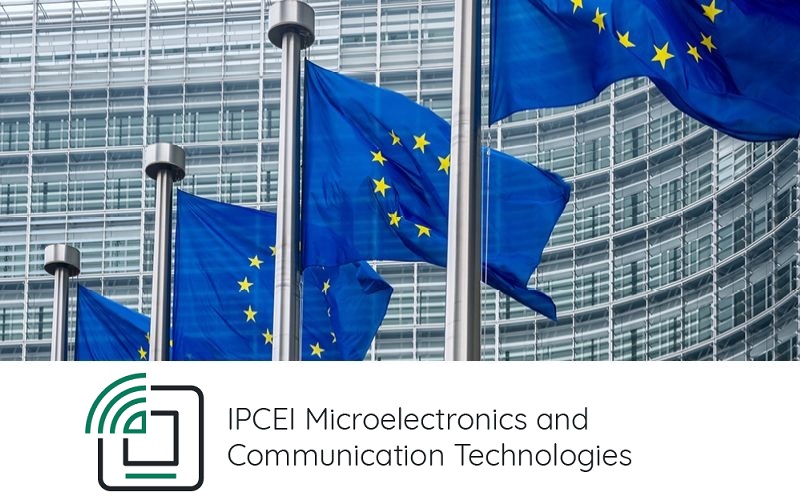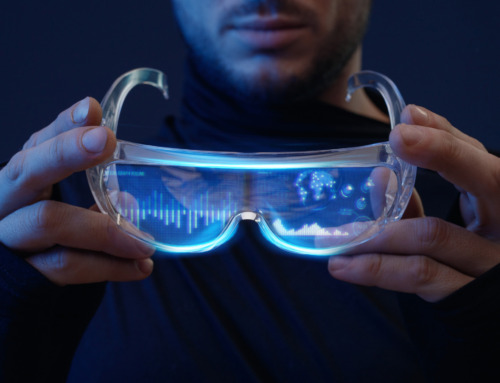Research: European Microelectronics in the fast lane
As part of the “IPCEI on Microelectronics and Communication Technologies” funding project, the European Union is supporting research institutions and industrial partners in the development of technology that will enable a sustainable yet powerful data infrastructure for the continent. AT&S is involved in the project as a manufacturer of highly efficient substrates for the next generation of microchips. New research and production capacities in Leoben will play a decisive role in the modernization of the European microelectronics industry.
In the European Union, IPCEI stands for “Important Projects of Common European Interest” and promotes research and development work of strategic importance for the future of the European economy and society. Which technologies and industries really have the potential to change the world in the coming decades can be debated at length. However, experts agree on one thing: data is the new gold and only those who have the skills and resources to provide the necessary infrastructure for processing, transporting and storing information will be able to succeed in the future.
Above all, this requires high-performance microchips, memory modules and communication networks, all of which rely on advances in microelectronics. It is therefore hardly surprising that the European Union is promoting this subject a second time with the large-scale research and development package “IPCEI on Microelectronics and Communication Technologies” (IPCEI ME/CT). The aim of the project is to promote the research and development of new microelectronics technologies along the entire value chain, from the development of new materials and tools to the improvement of manufacturing processes and new chip designs.
Green technology from Europe
Without energy efficiency and powerful data processing systems, no industry will be able to compete in the end. The fight against climate change and a sustainable reform of the global energy, transport and communications infrastructure is largely dependent on advances in microelectronics as well. The next big drivers of economic growth will come from technologies such as artificial intelligence, faster mobile networks, self-driving cars and quantum computing, all of which rely on a vastly improved digital infrastructure. The IPCEI ME/CT ensures that Europe has the chance to develop a technological lead by providing the continent’s best research institutions and companies with a competitive framework.
AT&S is one of the industrial partners in the project alongside leading European chip manufacturers such as Infineon and NXP and signed the final framework agreements for participation at the end of May. The funding will be invested at the Leoben site in order to develop technologies and manufacturing processes that will enable future microchips, whose transistors will only be a few atoms in size, to be operated in an energy-efficient manner. The impact will be significant, as future processors will consume up to 75 percent less energy than today.
Miniaturization through high-tech production
AT&S will be working in the “Workstream: THINK” and the “Substrates@Europe” project, which are part of “Workpackage 2: Semiconductor Technologies, Manufacturing, Packaging & Test” of the IPCEI ME/CT. The goal is to develop highly miniaturized substrates that are capable of efficiently and reliably controlling and supplying energy to the transistors of the next generation of chips, which will be just two nanometers in size.
New production and development processes for microelectronic systems are also being established: By using virtual reality, many development steps can be carried out purely in simulations in the future, without the need for expensive prototypes or trials with physical hardware. As a result, circuits can be designed and produced significantly faster and more cost-effectively, making even small production volumes for special applications worthwhile. The new production facilities in Leoben also allow completely new production processes to be tested, which promise significant efficiency gains thanks to real-time data, virtual twins and state-of-the-art machines.
To achieve these goals, AT&S is collaborating with some of the most renowned semiconductor companies and research institutions in Europe and sharing expertise, further strengthening the continent’s microelectronics ecosystem and providing young talent with fresh opportunities in education and on the labor market. In this way, the IPCEI ME/CT creates the framework and personnel basis for a robust, transnational industrial and research infrastructure that has the potential to give the old continent a decisive boost in the global competition for the green computing power of the future.
Share post:




